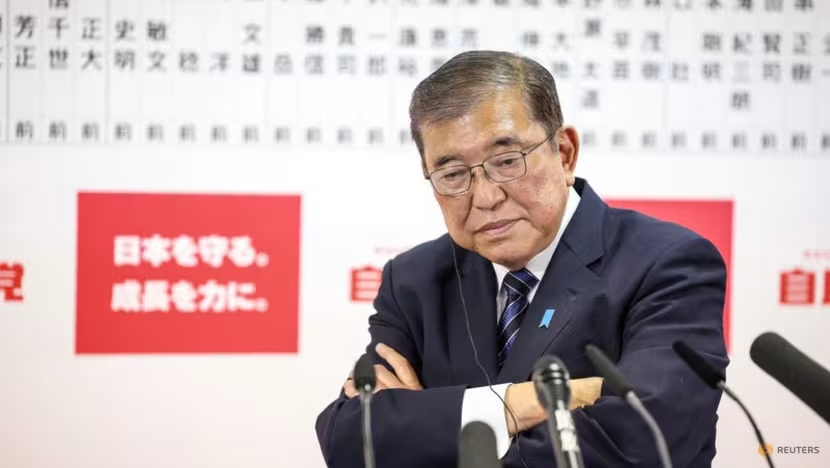Japan’s recent election results have thrown the nation’s political landscape into uncertainty, as no single party has emerged with a clear majority. This outcome raises significant questions about the future direction of the government and its ability to implement policies effectively. With various political factions vying for influence, the coming weeks and months will be crucial in determining how Japan will navigate this new political terrain.
The Election Results
The election, held to fill seats in Japan’s House of Councillors, has left the ruling Liberal Democratic Party (LDP) facing challenges in maintaining its grip on power. Although the LDP remains the largest party, its inability to secure a majority has forced it into a precarious position. Voter turnout was lower than expected, with many citizens expressing dissatisfaction with the political options available to them.
The election results indicate a significant shift in voter sentiment, reflecting public frustration with the government’s handling of key issues such as the economy, aging population, and rising costs of living. As a result, smaller parties have gained traction, complicating the political dynamics in the country.
The Ruling Coalition’s Challenges
With no party holding a majority, Prime Minister Fumio Kishida faces an uphill battle in forming a stable government. The LDP will likely need to seek alliances with other parties to establish a functional coalition. This coalition-building process could prove challenging, as different parties have varying agendas and priorities, making it difficult to find common ground.
Political analysts suggest that the LDP may look to form a coalition with the Komeito party, which has historically been a reliable partner. However, even with this alliance, the government may struggle to push through legislation, especially if they encounter opposition from more progressive parties like the Constitutional Democratic Party of Japan (CDP) or new contenders that have emerged in this election.
Japan’s Government in Flux
Public Reaction and Future Implications
The election outcome has sparked diverse reactions among the public. Many citizens are hopeful that the lack of a clear majority will lead to more collaboration and compromise among parties, potentially resulting in more representative governance. Others, however, express concern that the fragmented political landscape may hinder decisive action on pressing issues, leaving the government ineffective in addressing the needs of the populace.
As Japan faces numerous challenges, including economic recovery post-COVID-19, climate change, and international relations, the ability of the government to act swiftly and cohesively will be critical. The election has illuminated the need for a more engaged and responsive political system that reflects the diverse views and concerns of Japanese citizens.
Potential Policy Changes
In the wake of the election, the Kishida administration will need to reassess its policy priorities. Economic revitalization remains a pressing issue, particularly as Japan grapples with inflation and stagnation. The government may be compelled to consider innovative solutions and collaborate with opposition parties to garner support for necessary reforms.
Social issues, such as gender equality and youth engagement, are also likely to come to the forefront as the new political landscape evolves. Younger voters, in particular, are increasingly vocal about their needs and expectations from political leaders, prompting a potential shift in focus for the government.
The Road Ahead
As Japan navigates this uncertain political terrain, the coming weeks will be crucial for Prime Minister Kishida and his administration. The process of forming a coalition government will require negotiation and compromise, as well as a keen understanding of the shifting public sentiment.
Political stability is essential for effective governance, and leaders must be attuned to the concerns of their constituents to build trust and support. The recent election has opened the door for potential changes in Japan’s political landscape, paving the way for a more dynamic and responsive government.
Conclusion
The recent election results have left Japan’s government in a state of flux, with no single party achieving a majority. This outcome presents both challenges and opportunities for political leaders as they seek to form a stable coalition. The need for effective governance in addressing pressing issues has never been more critical. As the political landscape shifts, the ability of Japan’s leaders to collaborate and engage with the public will be key in shaping the future of the nation. With a heightened demand for transparency and responsiveness, the next steps taken by the government will be closely watched by citizens eager for positive change.
Source: BBC
In other news – Pearl Thusi stars in the new film
Pearl Thusi Shines in Upcoming Film: A New Chapter in Her Acting Career. Renowned South African actress Pearl Thusi is set to captivate audiences once again with her latest role in a new film that promises to showcase her exceptional talent and versatility.
Known for her powerful performances and dynamic presence on screen, Thusi is ready to take on a character that challenges her and further establishes her as a leading figure in the film industry. Read more



